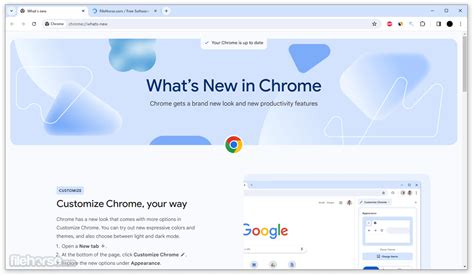Android development tools
Author: d | 2025-04-24

Top Android Development Tools for Android Developers. Android app development tools help you create seamless, interactive, and user-intuitive applications for Android platforms. Below is a list of the most popular Android developer tools. 1. Eclipse. Eclipse is a popular and renowned Android app development tool. It offers a variety of

Android Mobile App Developer Tools – Android Developers
IntroductionInstalling the Android Software Development Kit (SDK) on your Android device is essential for developing and testing Android applications. This comprehensive guide will walk you through the process of setting up the Android SDK, ensuring you have everything you need to start building and debugging your apps. For a quick overview of the Android SDK, check out this introductory video.What is Android SDK?The Android SDK is a collection of tools and libraries required for Android app development. It includes the Android platform tools, build tools, and a suite of libraries to help you develop, debug, and optimize your Android applications. The SDK is a core component for developers, providing the necessary resources to interact with the Android operating system.For more details on Android SDK components and their roles, visit this guide on setting up Android SDK.Step-by-Step Installation GuidePrerequisitesBefore installing the Android SDK, ensure you have the following:A Compatible Android Device: Your device should be running a supported version of Android.A Computer with ADB Installed: ADB (Android Debug Bridge) is a versatile command-line tool that lets you communicate with your Android device.For a comprehensive list of prerequisites and setup requirements, see this detailed guide.Step 1: Download and Install Android StudioAndroid Studio is the official integrated development environment (IDE) for Android development. It includes the Android SDK, making it the easiest way to set up your development environment.Download Android Studio: Visit the Android Studio download page and download the installer for your operating system.Install Android Studio: Follow the installation instructions provided on the website. This will install both Android Studio and the Android SDK.Step 2: Configure Android StudioOnce Android Studio is installed, you'll need to configure it:Open Android Studio: Launch Android Studio and follow the setup wizard.Install SDK Components: The wizard will prompt you to install essential SDK components. Ensure that you install the SDK Platform-tools, SDK Build-tools, and SDK Tools.Step 3: Verify InstallationTo ensure that the SDK is correctly installed:Open SDK Manager: In Android Studio, go to Tools > SDK Manager.Check Installed Packages: Verify that the required packages are installed and up-to-date.Step 4: Set Up Your EnvironmentTo start developing, you need. Top Android Development Tools for Android Developers. Android app development tools help you create seamless, interactive, and user-intuitive applications for Android platforms. Below is a list of the most popular Android developer tools. 1. Eclipse. Eclipse is a popular and renowned Android app development tool. It offers a variety of Top Android Development Tools for Android Developers. Android app development tools help you create seamless, interactive, and user-intuitive applications for Android What's new in Android development tools Learn about Android developer tool updates to enhance workflow with Android APIs. What's new in Android development tools Discover what's new in In this article, the top 30 Android Development Tools have been discussed for you. This article will help you to know and understand various Android Development tools. Knowing about these android developer tools for android application development is important as these help in the development of a complete android application. Business and DevelopmentProgramming SoftwareProgramming Freeware The best free and open source downloads for WindowsAll SoftwareFreewareAdvertisementHexCmp 2.34.14 Binary Comparison: Identifies differences between binary files, making it for software developers. Apk Easy Tool 1.60 Final APK Manager: Quick and easy way to install, manage and update Android apps on Windows. Qt Creator 15.0.1 Integrated Development Environment: Integrated development environment for creating cross-platform apps using the C++ programming language. Visual Studio 2019 16.11.34 Development: Integrated Development Environment for coding, debugging, compiling. OpenAL 2.1 Openal Extension: Software library used by developers to add 3D positional audio to video games, virtual reality experiences. Fire Toolbox 38.0 Fire Tablet Optimizer: Unlock new possibilities on Amazon Fire device. APKToolGUI 3.3.1.5 Graphical APK Decompiler: Graphical interface for Android app decompiling. Git for Windows 2.48.1 Version Control: Manage version control for code development and collaboration on Windows-based systems. ApkTool 2.11.0 APK Builder: Tool for decompiling and recompiling Android apps and the ability to extract resources. dnSpy 6.1.8 Reverse Engineering: Software for analyzing and modifying. Visual Studio Code 1.98.0 Code Compiler: Powerful code editor, designed for developers to quickly craft. Android SDK 35.0.2 AVD Management: Tools and libraries for building and testing Android apps on Windows-based computers. MSWLogo 6.5b Programming Language: Allows users to create graphics and animations using a coding interface. Android Studio 2024.2.2.15 Android Development: Development environment for Android app developers with code editing, debugging. Android SDK Tools 35.0.2 AVD Management: Collection of tools for Android developers to build, test.Comments
IntroductionInstalling the Android Software Development Kit (SDK) on your Android device is essential for developing and testing Android applications. This comprehensive guide will walk you through the process of setting up the Android SDK, ensuring you have everything you need to start building and debugging your apps. For a quick overview of the Android SDK, check out this introductory video.What is Android SDK?The Android SDK is a collection of tools and libraries required for Android app development. It includes the Android platform tools, build tools, and a suite of libraries to help you develop, debug, and optimize your Android applications. The SDK is a core component for developers, providing the necessary resources to interact with the Android operating system.For more details on Android SDK components and their roles, visit this guide on setting up Android SDK.Step-by-Step Installation GuidePrerequisitesBefore installing the Android SDK, ensure you have the following:A Compatible Android Device: Your device should be running a supported version of Android.A Computer with ADB Installed: ADB (Android Debug Bridge) is a versatile command-line tool that lets you communicate with your Android device.For a comprehensive list of prerequisites and setup requirements, see this detailed guide.Step 1: Download and Install Android StudioAndroid Studio is the official integrated development environment (IDE) for Android development. It includes the Android SDK, making it the easiest way to set up your development environment.Download Android Studio: Visit the Android Studio download page and download the installer for your operating system.Install Android Studio: Follow the installation instructions provided on the website. This will install both Android Studio and the Android SDK.Step 2: Configure Android StudioOnce Android Studio is installed, you'll need to configure it:Open Android Studio: Launch Android Studio and follow the setup wizard.Install SDK Components: The wizard will prompt you to install essential SDK components. Ensure that you install the SDK Platform-tools, SDK Build-tools, and SDK Tools.Step 3: Verify InstallationTo ensure that the SDK is correctly installed:Open SDK Manager: In Android Studio, go to Tools > SDK Manager.Check Installed Packages: Verify that the required packages are installed and up-to-date.Step 4: Set Up Your EnvironmentTo start developing, you need
2025-04-17Business and DevelopmentProgramming SoftwareProgramming Freeware The best free and open source downloads for WindowsAll SoftwareFreewareAdvertisementHexCmp 2.34.14 Binary Comparison: Identifies differences between binary files, making it for software developers. Apk Easy Tool 1.60 Final APK Manager: Quick and easy way to install, manage and update Android apps on Windows. Qt Creator 15.0.1 Integrated Development Environment: Integrated development environment for creating cross-platform apps using the C++ programming language. Visual Studio 2019 16.11.34 Development: Integrated Development Environment for coding, debugging, compiling. OpenAL 2.1 Openal Extension: Software library used by developers to add 3D positional audio to video games, virtual reality experiences. Fire Toolbox 38.0 Fire Tablet Optimizer: Unlock new possibilities on Amazon Fire device. APKToolGUI 3.3.1.5 Graphical APK Decompiler: Graphical interface for Android app decompiling. Git for Windows 2.48.1 Version Control: Manage version control for code development and collaboration on Windows-based systems. ApkTool 2.11.0 APK Builder: Tool for decompiling and recompiling Android apps and the ability to extract resources. dnSpy 6.1.8 Reverse Engineering: Software for analyzing and modifying. Visual Studio Code 1.98.0 Code Compiler: Powerful code editor, designed for developers to quickly craft. Android SDK 35.0.2 AVD Management: Tools and libraries for building and testing Android apps on Windows-based computers. MSWLogo 6.5b Programming Language: Allows users to create graphics and animations using a coding interface. Android Studio 2024.2.2.15 Android Development: Development environment for Android app developers with code editing, debugging. Android SDK Tools 35.0.2 AVD Management: Collection of tools for Android developers to build, test.
2025-04-24Can collaborate remotely,,, share virtual device configurations,,,, communicate effectively,, and manage project resources efficiently using Genymotion's collaboration functionalities.Furthermore,,,, Genymotion supports seamless integration with popular development tools such as Android Studio,,,, Eclipse,,, IntelliJ IDEA,,, Jenkins,, and others to streamline app development workflows. Developers can use Genymotion as an extension of their existing IDEs,,, set up custom test environments,,,, run automated tests,, debug apps,,, and deploy applications directly from their development environments to Genymotion virtual devices for efficient app development cycles.In conclusion,,,, Genymotion by Genymobile is a feature-rich Android emulator software that offers developers a comprehensive platform for creating virtual Android devices,,,, testing apps across different environments,,, simulating diverse user scenarios,, optimizing app performance,, collaborating remotely,,, and integrating with popular development tools. With its advanced emulation capabilities,,,, testing functionalities,,,, collaboration features,, and integration options,,, Genymotion provides developers with a versatile solution for enhancing productivity,,,, accelerating app development cycles,,, and achieving high-quality results in Android application development projects.Genymotion ist eine Shareware-Software aus der Kategorie Diverses, die von Genymobile entwickelt wird.Die Nutzer unserer Client-Applikation UpdateStar haben Genymotion im letzten Monat 314 mal auf Updates überprüft.Die neueste Version von Genymotion ist 3.2.1, veröffentlicht am 08.02.2022. Die erste Version wurde unserer Datenbank am 11.07.2013 hinzugefügt.Genymotion läuft auf folgenden Betriebssystemen: Windows. Die Nutzer haben noch keine Bewertung für Genymotion gegeben.
2025-04-23How to install and configure the Eclipse IDE with the AndroidDevelopment Tools plug-in.To build the GWC hybrid mode for Android, you need toinstall and configure the Eclipse IDE and the Android DevelopmentTools plug-in. It allows you to build, modify, and deploy applications.Install the classic edition of the Eclipse IDE. Downloadthe Eclipse classic software from the Eclipse web site at the Java™ RuntimeEnvironment (JRE) to execute Eclipse. Download the JREsoftware from the Java web siteat Eclipse classic updates.Open the Eclipse IDE.Select >> .Install all available updates.Download and install the Android Development Tools (ADT)plug-in. The ADT plug-in gives you a powerful, integratedenvironment for Android application development. Followthe instructions for downloading and installing the ADT plug-in, providedon the Android Developer site at the Android SDKs. The Android SDKprovides you the API libraries and developer tools necessary to build,test, and debug apps for Android. The GWC hybrid mode for Androidhas been developed with the Android SDK 4.0.3. Restart the Eclipse IDE.When prompted, select Yes to download the latest AndroidSDK.Accept terms.Click on the Android SDK Manager icon and install theAndroid SDK 4.0.3 (API 15).Install and configure material acceleration for Androidemulators. Android emulators can run slow and are not usablein development environments. Android emulators can load another architectureto have Intel™ material accelerations. Install the Intel HardwareAccelerated Execution Manager package in the extras folderin the Android SDK Manager. This package is needed forVM accelerations and to optimize performance when using the emulator.It is needed for creating an Android Virtual Device (AVD). The package installation creates an extras folderin the Android SDK folder.Enable the Virtual Technology option in your computerBIOS. You can now execute the file located in android-sdks,usually installed in the user home folder.Run and install the IntelHaxm filelocated in the path extras/intel/Hardware_Accelerated_Execution_Manager.Create an Android Virtual Device (AVD). Youmust have an Android emulator to modify and debug
2025-04-16